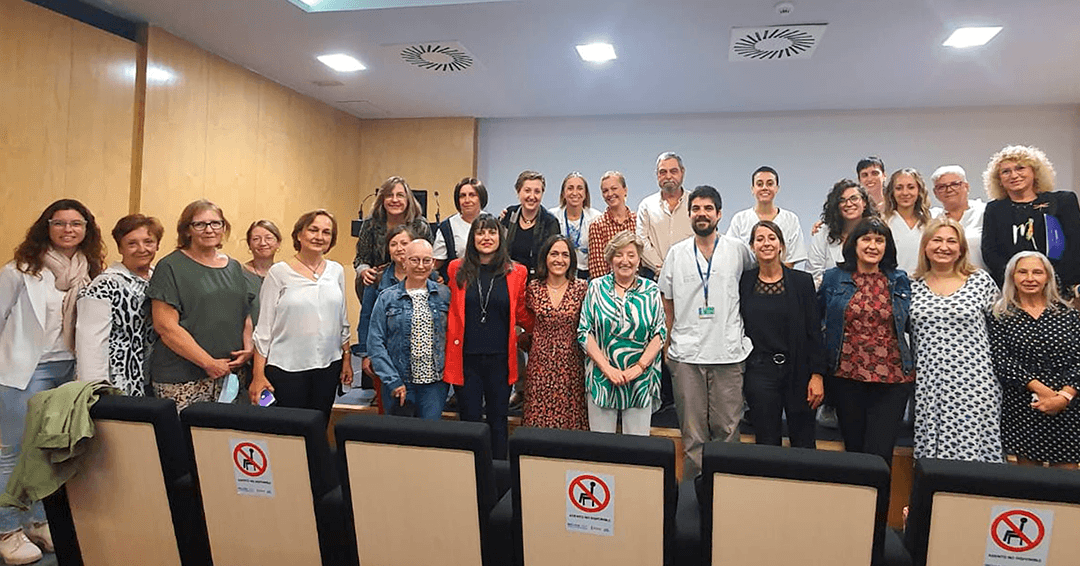INCLIVA presents the REBECCA project at a meeting with patients’ associations
Last week of September, the INCLIVA Biomedical Research Institute organized a meeting with patients’ associations in collaboration with the Breast Cancer Unit of the Hospital Clinic of Valencia. The objective of the meeting was to disseminate the latest advances in breast cancer research, present the REBECCA project, learn first-hand about their perceptions, and clarify doubts and concerns about the disease.

Researchers from INCLIVA’s Breast Cancer Biology Research Group and professionals from the Clinical Hospital shared their current research lines, all aiming for the same goal: the promotion of early diagnosis and the implementation of targeted treatments -depending on the subtype of breast cancer and personalised for each patient- to improve the survival and quality of life of those suffering from the disease.
The talks were conducted by the team involved in the Rebecca project: Dr. Begoña Bermejo, Cristina Hernando, Maite Martínez and Juan Miguel Cejalvo, from the INCLIVA research group, and Dr. Ana Martínez Aspas, from the Gynaecology and Obstetrics Department of the Hospital Clínico of València.
During her presentation, Dr. Cristina Hernando addressed the application of new technologies in the quality of life and specifically, the REBECCA project. Dr. Cristina Hernando explained how the project studies chronic diseases induced by breast cancer using data from multiple sources. She also explained how the project is based on technological tools that allows information to be obtained on the patient’s lifestyle, providing data (such as physical activity and diet) through smart devices to integrate into their clinical history, better tailoring their treatment.
The meeting – which will be continued with similar events and workshops – was very well received by the attendees, who were able to ask their questions directly to the researchers.
This type of events is a key element for INCLIVA to first-hand learn about perception and concerns of our patients, and then transfer such information back to the laboratories, generating a bidirectional flow. These actions are aligned with INCLIVA’s objectives in Responsible Research and Innovation (RRI), aiming to make science increasingly open, inclusive, transparent and collaborative, as well as to reduce the gap between science and society.
